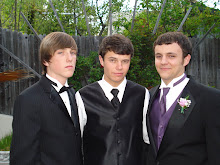The Joycean epiphany is a realization by a character that has negative results and is usually disappointing. Joyce uses his common literary tool when, in the short story “Eveline,” Eveline is about to embark on a journey with a man she adores in order to leave a life in which she is unappreciated and unhappy. Her epiphany is that she belongs at home because it is her duty to be there.
Until the point when she is about to leave Eveline is considering all her past memories with her family and where she lived. When she is about to depart she realizes that she must abandon this attempt at reaching her dream because Buenos Aires is not where she belongs. Instead she realizes that she needs to do her duty to her father despite the abuse she faces from him. When she asks God for guidance she does not ask him to guide her to do what is best for her. Instead, “She prayed to God to direct her, to show her what was her duty.” The author using the word “duty” here is important because it shows that she asks the unselfish question of what she should do as opposed to what would make her most happy. She comes to realize that although going to Buenos Aires with Frank may be what she wants to do, what she really needs to do is be with her father and stay in the town in which she was raised.
Eveline’s realization embodies a Joycean epiphany because it is disappointing to the character and it is an understanding that she did not grasp until this point. The point at which she chooses not to go chasing her dreams is the point where the audience is disappointed that the protagonist has not chosen to improve her life.
Subscribe to:
Post Comments (Atom)

6 comments:
Good example of a Joycean epiphany. At the end of Eveline, both the reader and Eveline comes to realization. For Eveline, she realize that she can not leave, for the reader we realize how tragic Eveline life is.
Good analysis on "Eveline". She was praying to God, on whether she could go with Buenos Aires or go back home with her father. She wanted a "duty" and her happiness didn't matter
Very interesting read, I did not even notice the presence of "duty" in the quote you included in your post on my first read. Eveline's epiphany you mention here reminds me of Gregor's in Kafka. He must do what is expected and sacrifice himself for his family.
Do you know what do we mean by chronological and psychic time in Eveline?
Do you know what do we mean by chronological and psychic time in Eveline?
What was the moment of epiphany for Eveline? Extract the passage that shows her realization and comment on it. Please help me ..
Post a Comment